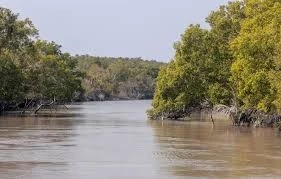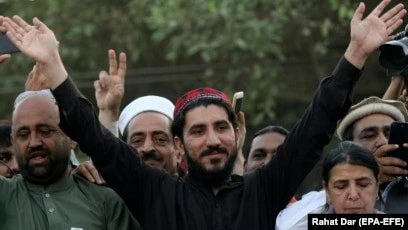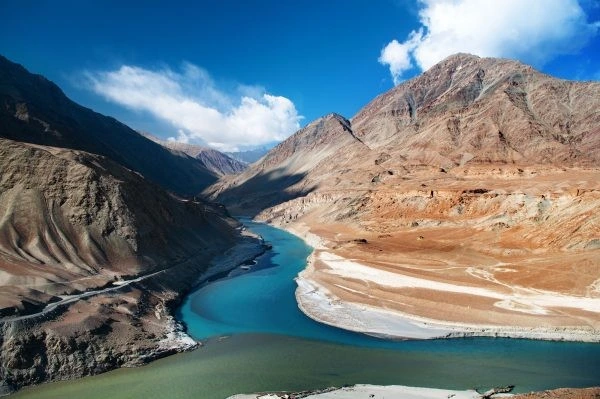Drowned Lands, Displaced Lives

Bangladesh has become the unwilling poster child for the terrible results of rising oceans as the globe struggles with climate change. The sea is no more a far-off barrier in the southern coastal areas of this little South Asian nation. It is inland, consuming farms, uprooting families, changing the topography and way of life for millions of people. Drowned Lands, Displaced Lives The situation in the Bengal Delta is not only local; it is a worldwide wake-up call alerting vulnerable populations all around about the mortal threat climate change presents.
One of the richest and heavily inhabited areas on Earth, the Bengal Delta is created by the junction of the Ganges, Brahmaputra, and Meghna rivers. Still, it is among the most sensitive to climate as well. Here, climate change shows itself as a daily reality rather than only a projection. Driven by a mix of melting glaciers, thermal expansion, and localized subsidence, sea levels along the Bangladeshi coast are increasing faster than the average globally. Every year, saline water seeps more into the ground, contaminating drinking water, ruining crops, and driving populations to flee ancestral homes.
The figures are rather clear. Rising sea levels could force 13.3 million people from Bangladesh by 2025, according to a World Bank estimate. Already, disasters linked to climate change including cyclones, flooding, and saline intrusion cause around 500,000 annual displacements. Many times, migrating to urban slums in cities like Dhaka and Chittagong, these climate refugees put further demand on already taxed infrastructure and services.
Numbers, though, cannot adequately represent the human cost. Complete towns are breaking up into the sea. While once-thriving farmers see their rice paddies deteriorate to desolate salt flats, children walk kilometres to get fresh water. Often the main caregivers for their families, women suffer a disproportionate load in trying to keep food security and access to healthcare in more hostile environments. Land is erasing not only physically but also cultural, memory, and personal identification.
In the face of this calamity, Bangladesh has not been inert. The nation is now among leaders in the world for climate adaption. From cyclone shelters saving thousands of lives during storms to floating gardens allowing vegetable production during floods, creativity born of need is all around. The Bangladesh Delta Plan 2100 of the government seeks to guarantee sustainable development in face of climate change head-on by means of policies. Still, adaptability has constraints. Local creativity cannot completely overcome a worldwide issue without worldwide answers.
Bangladesh’s events reflect a mirror held up to the rest of the globe. It makes us consider: how much more time we can overlook the data before us? The combined effect is showing up in people’s homes, sometimes quite literally as glaciers melt in the Himalayas and polar ice caps break apart and coral reefs bleach and die. The sea simply rushes on, a silent but forceful reminder of nature’s reaction to human carelessness; it does not ask permission before it penetrates a town.
The ramifications are extensive. Though with different degrees of resources and readiness, coastal cities including New York, Jakarta, and Lagos deal with similar challenges. Countries like Bangladesh suffer most yet contribute the least to world greenhouse gas emissions. This glaring disparity emphasizes the necessity of climate justice, a movement that demands help, compensation, and solidarity from more developed countries while acknowledging the disproportionate weight the Global South bears.
The world community must answer with action as much as with sympathy. This covers respecting Paris Agreement climate financing pledges, bolstering technological transfer, and making sure that efforts at adaptation and mitigation are dispersed. It also requires realizing the reality of climate migration and building legal and humanitarian systems to assist those uprooted by environmental damage.
Besides, we must face the underlying issues. Consumption of fossil fuels, destruction of forests, and unsustainable development strategies ought to be sharply cut back. Turning now to renewable energy, rewilding natural areas, and including sustainability into every sphere of life is not only a dream, but also a need right now. The suffering of Bangladesh is a warning of what many other countries would experience should urgent action not be done.
The sea brings a message: the climate crisis is not tomorrow’s issue as it flows inland in Bangladesh. Here, now, it is changing the planet in real time. Stories from the delta, of resiliency, of loss, of bravery, demand to be told. They serve to remind us that climate change is not a far-off worry or abstraction. This force ignores politics, riches, and geography. It affects the ground, the water, and every living entity.
The delta of Bangladesh is front stage. Still, in many respects we are all. Both practically and figuratively, the tides are turning. The issue is whether we will rise with them, united in goal and resolve or be carried away by the results of inactivity.











